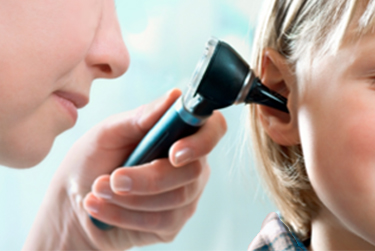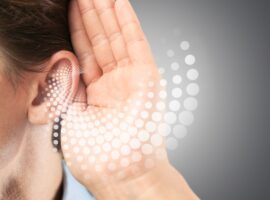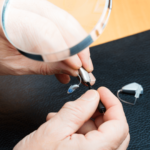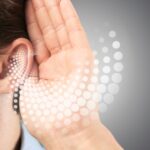 Childhood hearing loss isn’t always easy to recognize, and the symptoms can sometimes mimic normal adolescent behavior. Hearing is not checked by most pediatricians and general practitioners, therefore hearing loss can go undetected. Unfortunately, for young children that cannot yet hold a conversation, hearing loss can be very difficult for them to express. As a parent, you will probably be the first to notice your child’s hearing problem. It’s always important to detect and treat hearing loss at any age, however, it’s particularly important for developing children. There are 10 big indicators that your child needs a free hearing test, pronto.
Childhood hearing loss isn’t always easy to recognize, and the symptoms can sometimes mimic normal adolescent behavior. Hearing is not checked by most pediatricians and general practitioners, therefore hearing loss can go undetected. Unfortunately, for young children that cannot yet hold a conversation, hearing loss can be very difficult for them to express. As a parent, you will probably be the first to notice your child’s hearing problem. It’s always important to detect and treat hearing loss at any age, however, it’s particularly important for developing children. There are 10 big indicators that your child needs a free hearing test, pronto.
- The child is frequently inattentive
- The child answers inappropriately or fails to respond at conversational level speech
- The child turns the TV volume up very high
- The child speaks louder than necessary
- The child doesn’t seem to startle at loud sounds
- The child is having difficulty learning
- The child doesn’t turn toward the sound source
- The child says words incorrectly and has a delay in language and communication
- The child is socially withdrawn or avoids social situations
- The child does not follow direction
Causes
Some causes are premature birth, complications during birth, or heredity. Not all children with hearing problems are born with them. Hearing loss can develop later in childhood seemingly out of nowhere. Infections and medications are other possible causes of childhood hearing loss. Even if your child has passed a hearing test in the past, you should still be watchful for the signs of hearing loss.
Timing
The causes of hearing loss are extensive but the timing in which you get involved is critical. Childhood hearing loss left untreated will most definitely impact a child’s speech and development. Untreated hearing loss can also lead to delayed social development, depression and isolation. Your child’s hearing can be assessed at a local hearing aid clinic or an Ear Nose and Throat clinic.
Treatment Options
If your child does have a hearing loss, the treatment may or may not include hearing aids. All appropriate options will be explored with your Hearing Instrument Specialist or Pediatric Audiologist after a thorough diagnostic evaluation. If your child’s loss is moderate or severe, a Speech Language Pathologist may be recommended in addition to a hearing solution.
Pediatric Hearing Aids and Hearing Aid Accessories
If Hearing aids are necessary, there are many helpful and fun options for children. Pediatric hearing solutions are customized for your child’s individual lifestyle and hearing needs. Some pediatric hearing aid features include options such as:
- A visible light on the instruments that notifies parent/teacher of the current status
- Water resistant or waterproof hearing aids
- Remotes and companion microphones
- FM system and Bluetooth streaming, for phone, TV, and devices
- Color choice of hearing aids and ear molds
- Hearing-related books and inspirational coloring books
- Interactive phone apps that promote healthy listening skills and habits
- A stuffed animal that also wears hearing aids for emotional support
- Instrument cord and shirt clip to minimize loss
- Fun and bright stickers for hearing aids and hearing aid accessories
Childhood hearing loss is serious and important to treat as soon as possible. If your child exhibits any of the symptoms listed above, sign your child up for a free hearing test as soon as possible. All Hearing loss requires continual follow-up care as prescriptions and needs change. One hearing provider in San Antonio is open on Saturdays and does not charge for hearing tests as a service to the community. This significantly helps parents to ensure their children are hearing their best at all times without having to miss work or school.





